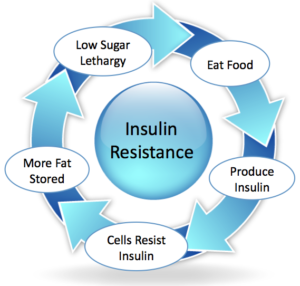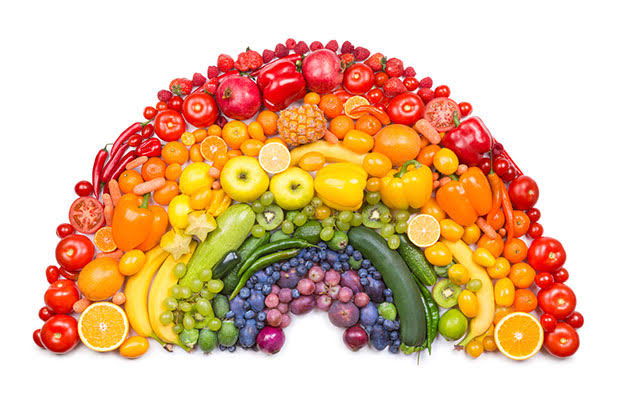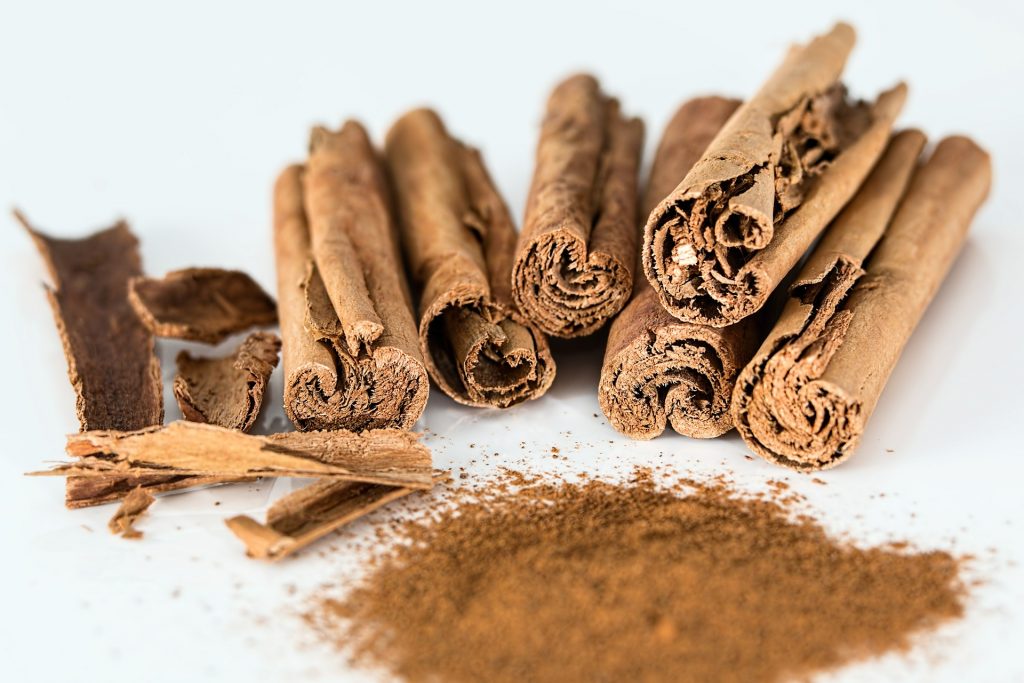Insulin resistance may be one of the key drivers of many — if not most — of today’s chronic diseases.
So How Should It Work?
Insulin is an important hormone that controls many bodily processes and challenges with this hormone are at the heart of many modern health conditions.
Insulin resistance, in which your cells stop responding to insulin, is incredibly common.
Simple lifestyle measures can dramatically improve this condition.
Insulin is an essential hormone that controls your blood sugar levels.
Insulin is made in your pancreas and helps move sugar from your blood into your cells for storage. When your pancreas senses high blood sugar, it makes more insulin to overcome the resistance and reduce your blood sugar.
Insulin:
- Regulates glucose balance in the body
- Controls fat metabolism
- Signals for the processes that move glucose into the cells for energy purposes
- Causes any excess glucose to be stored in adipose tissue as fat
- Suppresses glucagons & growth hormones, which regulate the burning of fat (stored fats)

Insulin resistance is when cells in your muscles, fat, and liver don’t respond well to insulin and can’t use glucose from your blood for energy. Over time, your blood sugar levels go up. Insulin resistance syndrome includes a group of problems like obesity, high blood pressure, high cholesterol, and type 2 diabetes.
Prediabetes is the condition of having abnormal levels of glucose, or sugar molecules, in the blood; insulin resistance refers to the mechanism by which one develops that condition. They’re not two different conditions; they’re cause and effect — insulin resistance is a prediabetes state.
Insulin resistance might develop into type 2 diabetes.
Insulin resistance, prediabetes, and Type 2 diabetes can be managed, and in many cases reversed, by the right lifestyle changes. Medication may also be prescribed.
BALANCED HEALING is able to assist you in improving this condition with simple lifestyle measures, nutritional advice and natural supplementation. PREVENTING INSULIN RESISTANCE may be among the most powerful ways to live a longer, healthier life.
How Do You Know If You Are Insulin Resistant?
Raised insulin and blood sugar levels are key symptoms of insulin resistance. Other symptoms include excess belly fat, high blood triglycerides, and low HDL (good) cholesterol levels.
The Effects of Insulin Resistance
- Extreme thirst or hunger.
- Feeling hungry even after a meal.
- Increased or frequent urination.
- Tingling sensations in hands or feet.
- Feeling more tired than usual.
- Frequent infections.
- Evidence in blood work.
Signs & Symptoms That Suggest you have progressed from Prediabetes to Type 2 Diabetes:
- Increased thirst.
- Frequent urination.
- Fatigue.
- Blurred vision.
Insulin Resistance vs Sensitivity
Insulin resistance and insulin sensitivity are two sides of the same coin. If you have insulin resistance, you have low insulin sensitivity. Conversely, if you are sensitive to insulin, you have low insulin resistance.
While insulin resistance is harmful to your health, insulin sensitivity is beneficial. Insulin resistance occurs when your cells stop responding to the hormone insulin. This causes higher insulin and blood sugar levels, potentially leading to type 2 diabetes.
Related Conditions
Insulin resistance is linked to metabolic syndrome and type 2 diabetes, which are among the world’s biggest health problems.
Metabolic syndrome is a group of risk factors associated with type 2 diabetes, heart disease, and other problems. It’s sometimes called insulin resistance syndrome, as it’s closely linked to this condition. Its symptoms include high blood triglycerides, blood pressure, belly fat, and blood sugar, as well as low HDL (good) cholesterol levels.
Relationship To Heart Health
Insulin resistance is linked to various ailments, including heart disease, NAFLD (Non-Alcoholic Fatty Liver Disease), PCOS (Poly Cystic Ovary Syndrome), Alzheimer’s disease, and cancer.
Natural Science-Backed Ways To Boost Your Insulin Sensitivity
Reduce Stress
Stress affects your body’s ability to regulate blood sugar. It encourages the body to go into “fight-or-flight” mode, which stimulates the production of stress hormones like cortisol and glucagon. Ongoing stress is linked to a greater risk of insulin resistance. Meditation, exercise and sleep are great ways to help reduce stress. A lack of sleep can harm your health and may increase insulin resistance. Making up for lost sleep may help reverse its effects.
Exercise More

Aerobic and resistance training can help increase insulin sensitivity, but combining them in your workouts seems most effective.
A Good Night’s Sleep

A lack of sleep can harm your health and may increase insulin resistance. Making up for lost sleep may help reverse its effects.ways to help reduce stress.
Eat More Soluble Fibre
Soluble fibre is responsible for many of fibre’s associated benefits, like lowering cholesterol and reducing appetite. Soluble fibre also helps feed the friendly bacteria in your gut, which have been linked to increased insulin sensitivity. Foods that are rich in soluble fibre include legumes, oatmeal, flaxseeds, vegetables like Brussels sprouts and fruits like oranges.
Control Your Weight

Excess weight, particularly in the belly area, reduces insulin sensitivity. Weight loss may help increase insulin sensitivity and is linked to a lower risk of diabetes.
Add More Colourful Fruits & Vegetables To Your Diet

Colourful fruits and vegetables are rich in plant compounds that help increase insulin sensitivity. But be careful not to eat too much fruit in a single sitting, as some types are high in sugar.
Add Herbs & Spices to Your Cooking
Garlic, fenugreek, turmeric and ginger may help increase insulin sensitivity. The research behind them is recent, so more studies are needed before strong conclusions can be made.
Add A Pinch Of Cinnamon

Cinnamon could help increase insulin sensitivity by increasing glucose transport into cells and may even mimic insulin to increase sugar uptake from the bloodstream.
Drink Green Tea
Drinking more green tea could help increase your insulin sensitivity and overall health. The increase in insulin sensitivity associated with green tea could be due to the antioxidant epigallocatechin gallate.
Apple Cider Vinegar
AC Vinegar could help increase insulin sensitivity by improving insulin’s effectiveness and delaying food release from the stomach to give insulin more time to act.
Reduce Carbs
Spreading your carb intake evenly throughout the day is another way to increase insulin sensitivity. Eating smaller portions of carbs regularly throughout the day provides the body with less sugar at each meal, making insulin’s job easier.
Avoid Transfats
Artificial fats. The link between artificial trans fats and insulin resistance is strong – it’s best to avoid them since they increase the risk of many other diseases.
Reduce Intake Of Added Sugars
Fructose found in added sugars in processed foods is linked to a higher risk of insulin resistance. Foods that contain high amounts of added sugar are also high in fructose. Natural sugars are found in sources like plants and vegetables, both of which provide lots of other nutrients.
Try a Supplement
Certain supplements have been shown to increase insulin sensitivity
- Chromium: A mineral involved in carb and fat metabolism. Studies have found that taking chromium picolinate supplements in doses of 200–1,000 mcg could improve the ability of insulin receptors to reduce blood sugar.
- Magnesium: A mineral that works with insulin receptors to store blood sugar. Studies have found that low blood magnesium is linked to insulin resistance. Taking magnesium may help increase insulin sensitivity.
- Berberine: It lowers plasma insulin levels and is used for the treatment of type 2 diabetes associated with insulin resistance and may benefit polycystic ovary syndrome (PCOS), patients. It may be used as monotherapy or in combination with other pharmaceutically prescribed treatments.
- Resveratrol: A polyphenol found in the skin of red grapes and other berries. It may increase insulin sensitivity, especially in those with type 2 diabetes, but its function is poorly understood.
As with all supplements, there is a risk they may interact with your current medication. PLEASE CONSULT WITH YOUR HEALTH CARE PROVIDER before commencing any other natural treatments.


Like!! I blog frequently and I really thank you for your content. The article has truly peaked my interest.
Hi, this is an amazing blog and i wana share here, whit you a new discover the odd Diabetes -Sugar Hack- that’s destroing high blood sugar sn thousands – https://bit.ly/36X7onX
My wife diabetes symptom was diabetic neuropathy. We didn’t know she was diabetic until we went to my doctor complaining about constant foot pain. After a multitude of tests for everything from rheumatoid arthritis to muscular dystrophy, an emergency room physician checked her blood sugar.After reviewing a letter written by my doctor, where I read he had prescribed Celebrex for her due to pain of Arthritis which had really messed her neck, back and knees, I found that one of the side effects of Celebrex is Diabetes, my wife was able to effectively cure herbal condition multivitamincare org It is too much for a patient to endure such as they slowly begin to pass away if the right medication is not taken organic herbal treatment.Having a positive mind is a powerful tool .My prayers goes out to diabetes patients and their care givers.